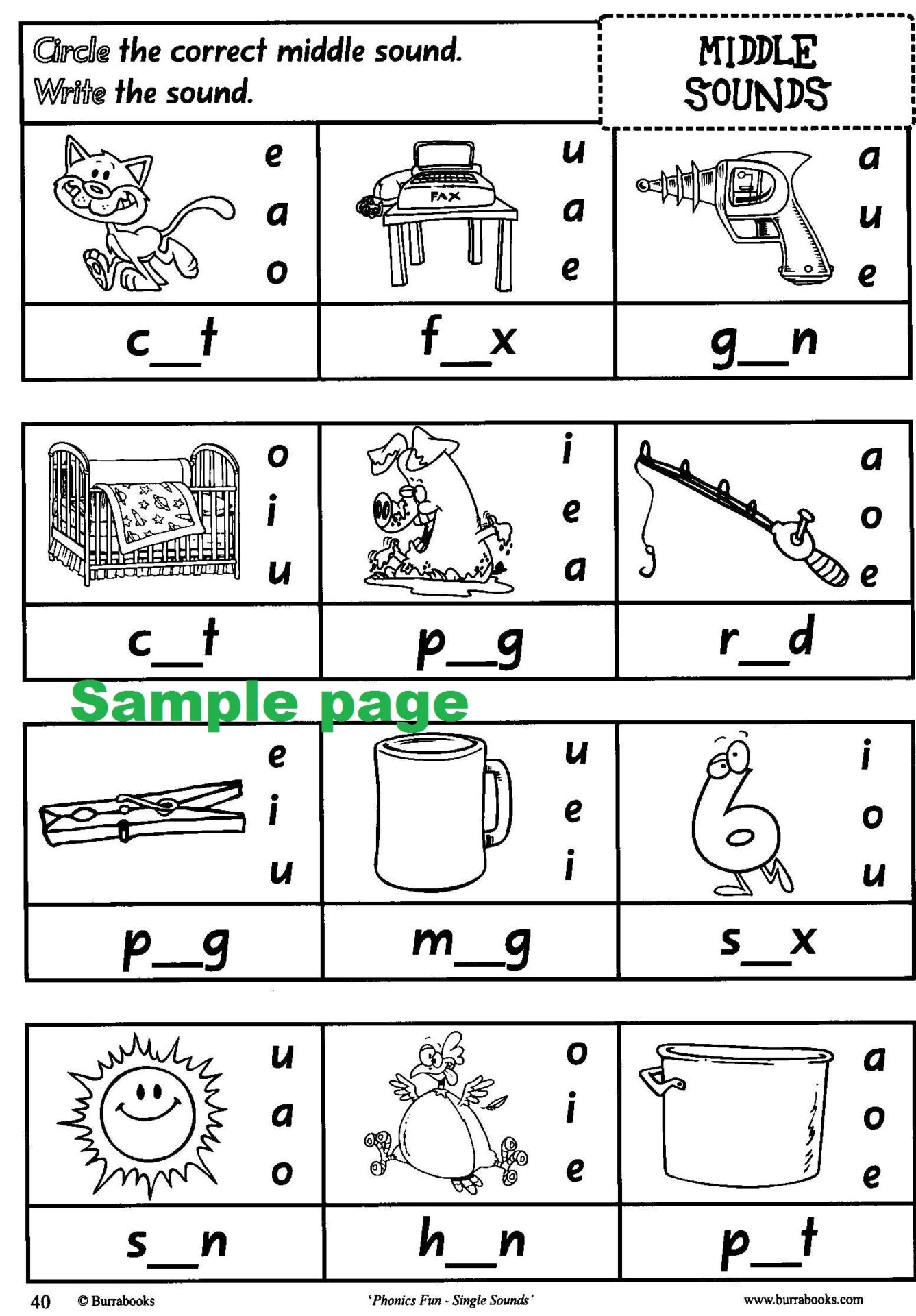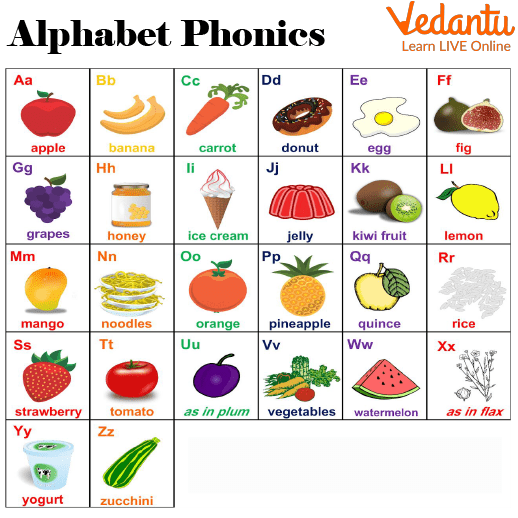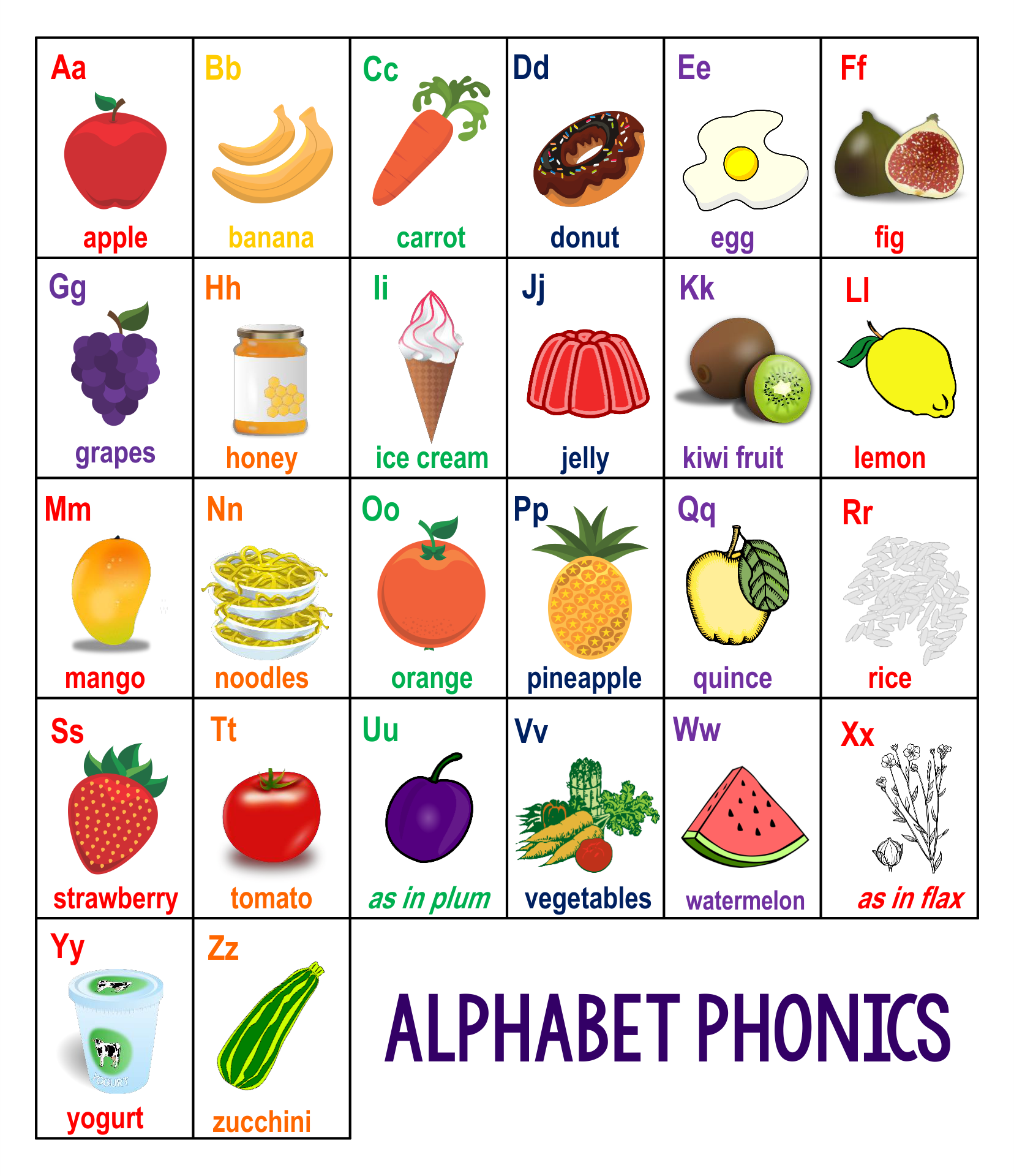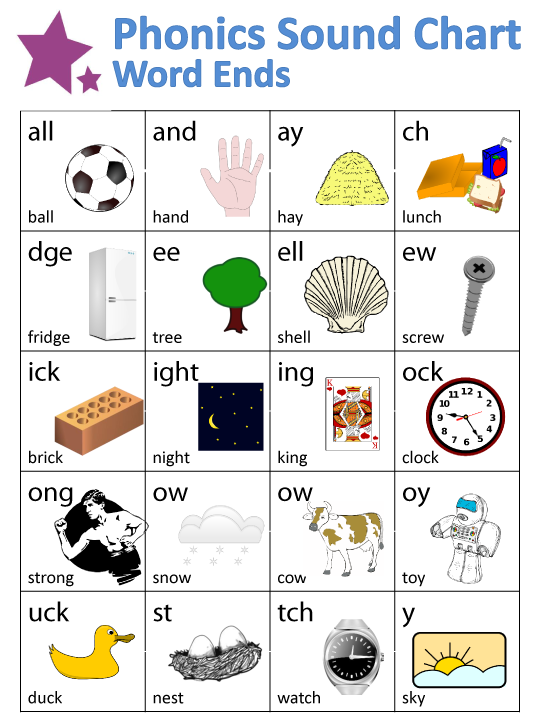
Pin on ESL Phonics
How to use the sound chart. Set aside 2 minutes of your phonics lesson. Point to the phonics sounds your student has already learned on the chart. As you point, have your student say the sound. This simple activity will help your student learn each phonics sounds location on the chart. This is beneficial.

Beginner Alphabet Phonics Sounds Chart Immerse the children in
For beginner readers. The simple phonic code table lists the first alternative spellings for vowel and consonant sounds. Print out and use as a reference for reading and spelling activities. In order to make full use of this table it is best reproduced using a colour printer. Download Chart. Complex phonic code table.

Phonics Fun Single Sounds DOWNLOADABLE Educational Worksheets & Books
Abeka Phonics Chart Pages - This Abeka curriculum inspired phonics chart pages will help your kids with reading, phonics, and spelling. They are a great addition to your young student's notebooks or wall displays. Beginner Alphabet Phonics Sounds Chart. Alphabet Phonics Chart - This free alphabet learning phonics chart can be used as.

an image of flash cards with the words phonics flash cards and their
That's why one of our veteran instructors, Tim Bertram, has put together a series of phonics practice resources like an printable alphabet phonics sounds chart to help kids iron out the kinks in their pronunciation. Here are all the charts available with MP3 audio file s below: Alphabet Phonics Sounds Chart. Consonant Combination Chart.

Free Phonics Worksheets Lucky Little Learners
Includes all the sounds introduced in the Basic Phonics Reading Program with pictures of clue words to help your child learn the sounds through association. Cursive writing appears on the reverse side of charts 1, 2, and 6-13. The 6 colorful review charts illustrated with adorable animals integrate similar sounds from various charts.

Beginning Sounds Chart Phonics kindergarten, English phonics, Phonics
The alphabet phonics sounds chart contains 26 English letters that represent 46 sounds. Children first learn these phonic sounds. These 46 phonic sounds make the building block of the whole language. This chart contains a letter from A-Z. With the help of this chart, a child is able to learn sounds by seeing the letter.

English Activities, Phonics Activities, Online Activities, Initial
Using the chart I have created, it would sound like this: a, /a/, apple; b, /b/, bus, c, /c/, cat and then continue through the chart. These charts might also be used for a tool during your small group instruction. You could give students a sound to find and they could then make a list on a white board of other words that contain the sound.

Phonic High Frequency Word Chart Phonic Books Phonics lessons
Easy Phonics Chart Freebie. This free printable has two pages: one for the consonant sounds and one for vowels. Each phoneme has different spelling patterns and examples of words to clarify the specific sound. Print this anchor chart in colour or black and white to make copies for your entire class or small group!

What is a Phonics Sound Chart? Learn with Examples for Kids
Phonics Primer. You can use this Phonics Primer developed by The National Right to Read Foundation to begin teaching a child or adult to read today. This primer lists the. 44 sounds in the English language and then gives steps for teaching those 44. sounds and their most common spelling patterns. In addition to learning sounds and spellings.

10 Best Alphabet Sounds Chart Printable PDF for Free at Printablee
Basic Phonics Rule # 1. *Vowels are the letters a, e ,i ,o, u and sometimes include y. When we make a vowel sound our jaw drops. Vowels are the letters in words that make words sound clear. Without them we sound as if we are muttering. No-one would understand us if we spoke without including them. Below are two sentences.

Phonics Worksheets Ending Sounds guruparents
This initial sounds phonics bundle includes pocket chart activities, posters, and worksheets students need to master reading foundational skills.. This chart is designed to help students learn and have a visual for learning basic spelling sounds such as short and long vowel sounds, r-controlled sounds and other common vowel and consonant.

Free Phonics Sound Charts for Kindergarten, 1st Grade, and 2nd Grade
For a FREE printable list of phonics sounds, click on the pdf: List of Phonics Sounds. Kids can benefit from learning phonemes systematically, meaning one at a time. For 100 printable decodable books check out our shop. In systematic phonics instruction, kids learn these 44 phonemes explicitly and the teacher writes the phonics sound on a sound.

Beginning Sound Phonics Worksheet Made By Teachers
There are several ways you should use a phonics chart in reading lessons, including: when your student makes a reading miscue. during spelling activities. you can also use a phonics chart to review phonics sounds by asking your student to "Find the "sh" sound and so forth. Phonics charts are important because they improve retention.

Phonics Sounds Of Alphabets in 2020 Phonics sounds, Learning phonics
Printable Phonics Letter Sound Flashcards and Charts. Learning how to read can be challenging when there are individual letters to learn, consonant sounds, and vowel sounds, plus an endless list of new words. This is why our Free Printable Phonics Sounds Cards are the perfect tool to help you help your kids learn the sounds of 84 different.

Worksheets for LKG to Grade 3 Maths English EVS Hindi Free
This beginning sounds chart includes 55 different beginning sounds, which is more comprehensive than anything I've made before or could find on the internet. The chart has single consonants, blends, digraphs, and even 7 harder sounds like spr-, str- or thr-. Each beginning sound has an image and word featuring the sound.

Worksheet on phonic sound ' q ' Phonics Sounds, India School, English
1. Start with simple hard consonants and short vowel sounds. You'll gradually work through the whole alphabet, but start with a group of letters (often, S, A, T, P, I, N) that can be combined to make a variety of words. This way, as students learn the individual letters and sounds, they can see how those letters work together to create words.